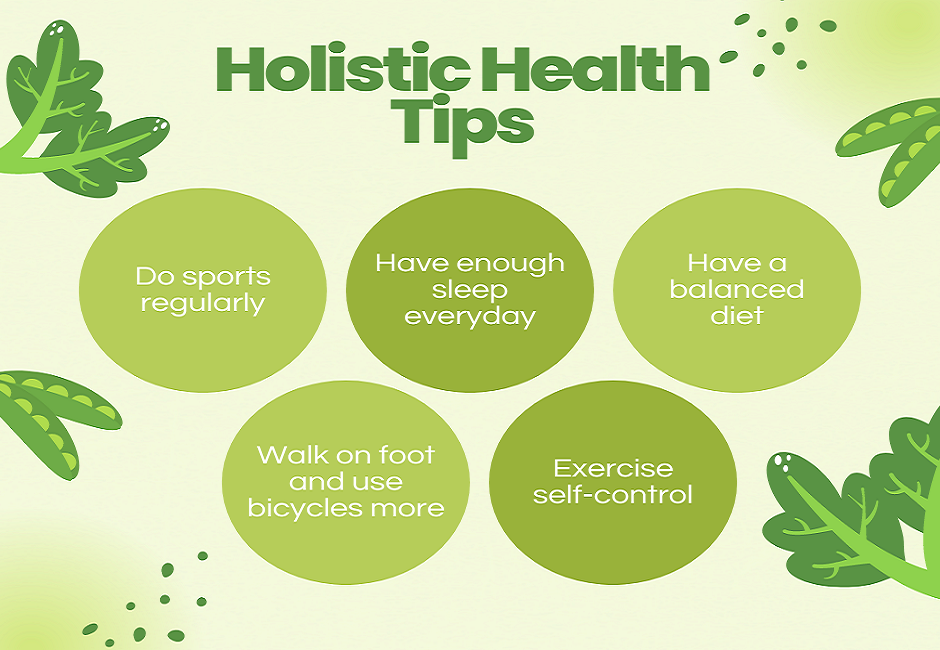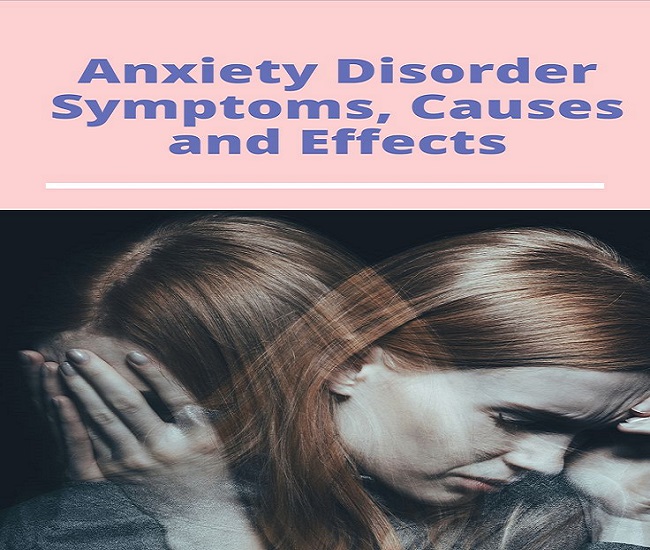Holistic health Tips is an all-encompassing approach that views the individual as a whole, considering physical, mental, aspects. This guide explores essential holistic health tips, addressing common questions like What are the tips for holistic health? Which five aspects of holistic health advice are there? What are the eight pillars of holistic health? and What are the five pillars of holistic well-being? By the end of this article, you’ll have a solid understanding of holistic health and actionable tips to incorporate into your daily life.
What is Holistic Health ?
Holistic health is a way of living that emphasizes the connection between mind, body, and spirit. Instead of just addressing symptoms, holistic health aims to uncover the root causes of imbalances and treat the whole person. This approach fosters a harmonious balance, leading to a healthier, happier life.
What Are the Tips for Holistic Health?
Prioritize a Balanced Diet
A balanced diet rich in whole foods is the foundation of holistic health. Throughout your meals, include a range of fruits, vegetables, whole grains, lean meats, and healthy fats. Focus on organic, non-GMO foods to reduce exposure to harmful chemicals.
Practice Regular Physical Activity
Exercise on a regular basis to promote general wellbeing. Whether it’s brisk walking, yoga, or strength training, exercise helps improve cardiovascular health, boost mood, and enhance energy levels. Mind-body exercises like yoga and tai chi are particularly beneficial as they combine physical movement with mindfulness.
Manage Stress Effectively
Chronic stress can cause heart disease, depression, anxiety, and other health problems. Effective stress management is crucial for holistic health. Incorporate relaxation techniques like meditation, deep breathing exercises, and mindfulness practices into your daily routine to reduce stress and promote emotional balance.
Get Adequate Sleep
Quality sleep is essential for overall health. To aid in the healing and regeneration of your body, aim for seven to nine hours of sleep each night. Maintain a consistent sleep schedule and make your bedroom quiet, dark, and cold to promote rest.
Foster Positive Relationships
Emotional and mental health are largely dependent on healthy connections. Surround yourself with supportive, positive people who encourage personal growth and happiness. Strong social connections have been shown to boost immunity, reduce stress, and increase longevity.
What Are the Five Aspects of Holistic Health?
Holistic health considers five key aspects that contribute to overall well-being:
Physical Health
- Encompasses the body’s ability to function optimally. This includes proper nutrition, regular exercise, adequate rest, and the absence of chronic pain or discomfort.
Emotional Health
- Involves understanding and managing your emotions. Emotional health is about being in tune with your feelings and expressing them appropriately. It also includes the ability to cope with life’s challenges in a healthy manner.
Mental Health
- Refers to cognitive functions such as thinking, learning, and memory. Mental health involves maintaining a positive mindset, managing stress, and staying intellectually engaged.
Spiritual Health
- Spiritual health is about finding purpose, meaning, and connection in life. This could be through religion, personal spirituality, or a deep connection with nature. Spiritual health often provides a sense of inner peace and fulfillment.
Social Health
- Involves building and maintaining healthy relationships. Social health includes effective communication, empathy, and the ability to connect with others in meaningful ways.
What Are the Eight Pillars of Holistic Health?
The eight pillars of holistic health represent different areas of life that contribute to overall well-being:
Nutrition
- A balanced diet rich in whole foods fuels the body and supports overall health.
Physical Activity
- Regular exercise strengthens the body, boosts energy, and enhances mental clarity.
Emotional Well-Being
- Managing emotions and coping with stress are essential for mental health.
Spirituality
- Spiritual practices provide purpose, peace, and a sense of connectedness.
Intellectual Health
- Keeping the mind active and engaged through learning and creative activities.
Environmental Health
- Creating a healthy environment, both at home and in the community, contributes to overall well-being.
Financial Health
- Managing finances wisely reduces stress and supports a balanced lifestyle.
Social Connections
- Strong, supportive relationships are vital for emotional and mental health.
What Are the Five Pillars of Holistic Well-Being?
Holistic well-being can be distilled into five main pillars that support a balanced life.
Physical Well-Being
- This pillar focuses on maintaining a healthy body through nutrition, exercise, and adequate rest. Physical well-being is foundational to overall health and affects all other aspects of holistic well-being.
Mental Well-Being
- Mental well-being involves cognitive functions, mental health, and emotional resilience. It’s about maintaining a positive mindset, managing stress effectively, and staying mentally engaged.
Emotional Well-Being
- Emotional well-being is about understanding, expressing, and managing emotions in a healthy way. It also involves building and maintaining positive relationships and coping with challenges.
Spiritual Well-Being
- Spiritual well-being connects you to something greater than yourself, whether it’s through religion, spirituality, or nature. It provides purpose, peace, and a sense of fulfillment.
Social Well-Being
- Social well-being is about building and nurturing healthy relationships. It involves effective communication, empathy, and a sense of belonging to a community.
Holistic Health Practices
Creating a Routine
Incorporating holistic health practices into your daily life requires creating a routine that supports balance and well-being. Start by setting aside time for regular exercise, meal planning, and mindfulness practices. Gradually integrate more holistic health tips as you become comfortable with your new routine.
Mindful Living
Mindful living is a core principle of holistic health. It’s about being fully present and aware of your thoughts, actions, and surroundings. Practice mindfulness by focusing on the present moment, whether you’re eating, exercising, or spending time with loved ones. Mindful living helps reduce stress, improve focus, and enhance overall well-being.
Integrating Alternative Therapies
Alternative therapies such as acupuncture, massage, and aromatherapy can complement traditional medical treatments and enhance holistic health. These treatments encourage calmness, lessen tension, and aid in the body’s inherent healing mechanisms. Building a Support System a strong support system is essential for maintaining holistic health. Surround yourself with people who encourage your growth and support your holistic lifestyle. This could include family, friends, or even a community of like minded individuals who share your values.
Conclusion
Holistic health is a lifelong journey of balancing mind, body, and spirit. By understanding the five aspects, eight pillars, and essential tips for holistic health, you can create a well-rounded approach to your well-being. Implement these practices into your daily routine, and you’ll find yourself leading a more balanced, fulfilled life.
For more insightful articles on holistic health and well-being, visit our website.



